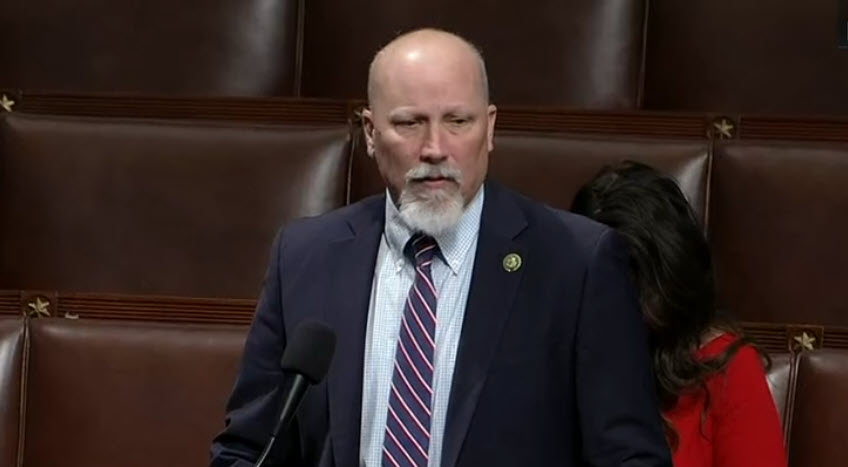While his Republican colleagues embark on a high-profile trip to the southern border, Texas Congressman Chip Roy has carved his own path, proposing a controversial plan that throws a wrench into the GOP’s current immigration strategy. Roy’s audacious move – threatening to shut down the government unless the border is closed – has ignited both fiery debate and concerns about potential economic chaos.
Unlike the majority of his party, Roy isn’t interested in photo ops and fact-finding missions. He’s calling for action, not observations. His proposal is stark: deny funding for the entire federal government unless Congress enacts legislation to effectively halt migration at the southern border.
This “nuclear option” comes with staggering potential consequences. A government shutdown, as seen in 2018 and 2019, can cripple the economy, furlough millions of federal employees, and send ripples of uncertainty through financial markets. It’s a high-stakes gamble, raising questions about Roy’s political calculus and the feasibility of his plan.
Roy’s stance stands in stark contrast to the current GOP strategy on immigration. While many Republicans express their concerns about border security, their actions often lean towards optics and messaging, focusing on visits to the border and criticizing the Biden administration’s policies. Roy, however, seems intent on forcing immediate action, even if it means risking collateral damage.
The potential economic fallout of Roy’s proposal is no mere side effect. The closure of two railroad crossings in South Texas last month, a consequence of similar concerns about border security, serves as a grim reminder of the interconnectedness of border issues and the national economy. Disruptions at the border can have cascading effects, impacting farmers, businesses, and consumers across the country.
Whether Roy’s lone wolf approach gains traction within the GOP or remains an outlier remains to be seen. His proposal faces both staunch opposition and cautious interest from within the party. Democrats, unsurprisingly, have rejected the idea outright, calling it irresponsible and dangerous.
In the face of immense political and economic risks, one thing is certain: Chip Roy’s radical plan has injected a potent dose of controversy into the immigration debate. Whether it paves the way for legislative action, sparks a wider discussion about border security, or simply ends up a footnote in political history, it has succeeded in capturing attention and forcing everyone to take notice.
Chip Roy’s border crusade, with its potential pitfalls and high-stakes gamble, presents a stark choice: prioritize immediate action against immigration, even at the cost of economic turmoil, or seek more measured solutions that balance border security with national well-being. The answer, and the path forward, will shape not only the lives of those at the border but also the economic and political landscape of the nation as a whole.



